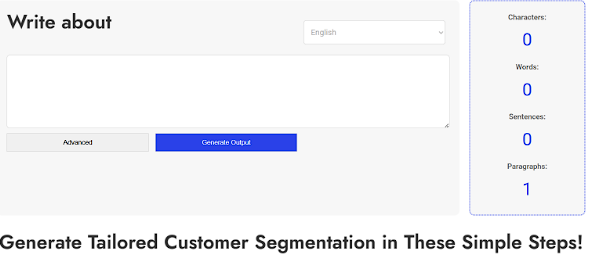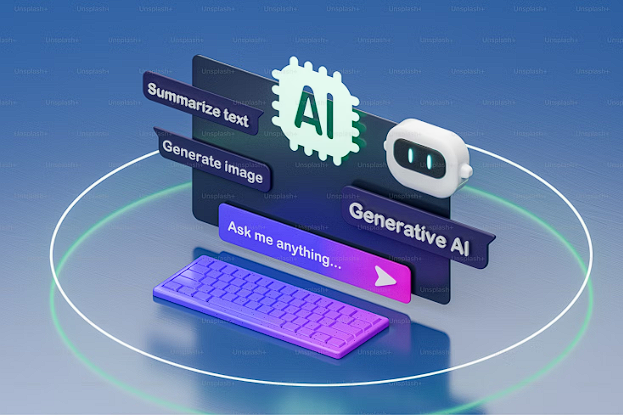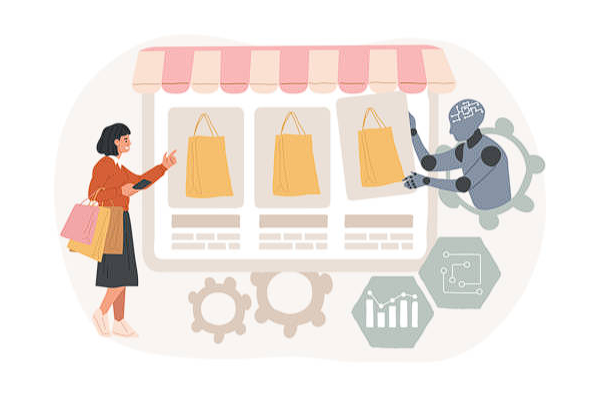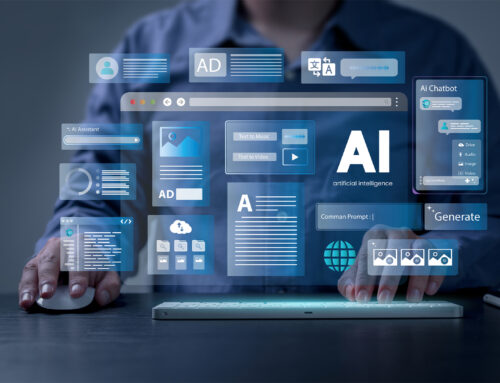It used to seem impossible to guess what each customer wants before they even ask. But artificial intelligence has made that dream a daily reality. AI is the revolutionary force allowing companies to provide highly personalized experiences without human intervention. As customer needs change, artificial intelligence is becoming the key to making functional and scalable connections and increasing sales and customer loyalty.

The Role of AI in Personalization
Artificial intelligence is one of the most important parts of current personalization tactics. AI programs can find trends that human marketers might miss by looking at vast amounts of data, such as browsing and buying history. Machine learning models are better at dividing people into groups. They help determine what people will do in the future and then suggest material, deals, or products that are more relevant.
Real-time functionality is a significant benefit of AI-driven customer experience systems. Artificial intelligence ensures that every contact feels current and timely, whether changing the top of a website or sending dynamic content via email. Integrating email APIs enables brands to automate and personalize email delivery based on AI-driven triggers, ensuring each message is sent at the right moment with the right content. Brands can now simultaneously personalize conversations across multiple sites by using computer vision, natural language processing, and predictive analytics. To implement and scale these AI systems effectively, an AWS course can equip teams with the necessary skills to optimize cloud infrastructure and support real-time personalization.

A Customer Segmentation Text Generator shows how themes based on machine learning can speed up messages for small groups. It can help show that even small teams can act on detailed ideas without doing too much work by hand. For example, Spotify’s “Discover Weekly” stream collects billions of listening minutes, trains collaborative-filtering models, and then sends 30 new songs to each viewer every Monday. This would not be possible without computerized intelligence.
Ways AI To Personalize Customer Experiences At Scale
Personalization has become a defining factor in modern customer experience management, with many companies now adopting AI To Personalize Customer Experiences At Scale. By using AI technologies and AI models, businesses can gain a unified view of customer needs, behaviors, and preferences. This makes it possible to deliver personalized experiences that feel relevant and engaging, enhance customer satisfaction, and improve long-term loyalty. When organizations leverage AI, they can adapt marketing strategies and personalization strategies to meet specific customer needs in real time, making personalization more dynamic and effective.
AI-powered personalization allows brands to:
-
Use data from customer interactions and customer service interactions to predict customer behavior.
-
Create personalized content in real time to match customer behaviors and preferences.
-
Build tailored experiences across customer touchpoints.
-
Apply personalization uses in digital experiences for seamless engagement.
-
Enhance the customer experience while boosting customer satisfaction and loyalty.
Transforming Customer Engagement Through AI
The use of AI in customer engagement has expanded rapidly, powered by AI technologies that enable personalized customer experiences at scale. AI analyzes data and AI insights from customer journey patterns to deliver personalized offers, personalized content, and personalized marketing campaigns. This powered by AI personalization approach ensures personalized experiences that resonate, increasing both customer retention and the overall impact of AI in engagement strategies.
Key ways AI can help include:
-
AI uses historical and real-time customer behavior data to deliver personalized interactions.
-
AI and machine learning adapt personalization efforts based on previous customer actions.
-
Companies to deliver personalized journeys with tailored experiences that improve better customer outcomes.
-
AI enables experiences that feel unique across multiple experiences across channels.
-
Personalization right ensures that companies to deliver personalized interactions consistently.
AI to Enhance Customer Support
Customer support is a critical stage in the customer journey, and AI in customer experience plays a major role in transforming it. With AI-powered customer systems, organizations can offer personalized customer experiences during customer service interactions, ensuring customer satisfaction and boost customer trust. AI to enhance support means agents get insights based on previous customer interactions, enabling them to offer personalized solutions at speed.
Benefits of AI to make support smarter:
-
Personalization can be applied to FAQs, chatbots, and help desks for unforgettable customer experiences.
-
AI personalization uses advanced technology to scale personalization across channels.
-
Investing in AI ensures personalization is essential to the future of customer experience.
-
Personalized customer experiences at scale help meet the demand where customers expect companies to deliver personalized help instantly.
-
AI personalization capabilities empower support teams to provide making personalization easier and faster.
The Future of Customer Engagement and Support with AI
In the future of customer experience, ai in marketing and ai for personalization will become central to personalized content delivery. Personalization drives ai-powered personalization initiatives that companies to deliver personalized campaigns and personalized experiences that resonate with every interaction. By combining ai personalization works principles with power of personalization, brands can deliver personalized experiences that set them apart.
In essence, the impact of AI lies in its ability to unify data, predict customer behaviors and preferences, and create unforgettable customer experiences powered by ai. With personalization right, personalization efforts will continue to evolve—ensuring that personalization has become not just a marketing advantage, but an operational necessity for building lasting loyalty.
Why AI Personalization is the Secret Sauce
Why is it so important to personalize things these days? Because people expect it. McKinsey says that 71% of customers expect brands to connect with them in a personalized way. Also, 76% get angry when they don’t get them. AI customization is the “secret sauce” because it ensures that what people expect is what they get. It helps turn simple customer data into experiences that are useful and well-thought-out.
Businesses can create real-time, personalized customer trips on a large scale with AI customer personalization, which isn’t possible with human work. Artificial intelligence’s ability to guess the future ensures that the right message gets to the right person at the right time, whether it’s suggesting a playlist, changing landing page content, or making product suggestions.
Hyper-Personalization with Generative AI
Generative AI is changing customization by doing more than just making suggestions. It doesn’t just guess what content will be; it makes content. Generative models, such as GPT, DALL·E, and others, make unique products that fit each person’s needs. You can craft customized customer service email drafts changing ad copy, or robot chats tailored to each customer.
Brands can provide highly contextual and hyper-personalized experiences using artificial intelligence models that can understand subtle tastes and tone. For example, chatbots now make replies based on each customer’s past. This helps make the service experience smooth. E-commerce sites, on the other hand, automatically write individual product details and ads. These help cut down on manual work and get people more involved.

Early tests of generative AI text-to-image ads and on-the-fly product descriptions show that they can be more creative and get people more involved. For example, KLM’s Messenger bot uses generative text to answer questions about luggage in a way that sounds and talks like a tourist. In addition to keeping people warm, this helps free agents.
Why Personalization at Scale Matters in 2025 and Beyond
Personalization at scale is becoming more and more critical as digital outlets grow and customer groups become more diverse. Things that worked in 2020, like a divided email list or basic content, don’t work anymore. Businesses must provide 1:1 personalization to millions of people by 2025 to build trust in sales, and AI is the only tool that can do this quickly and effectively.
Customers want experiences that fit their tastes on various gadgets and platforms, secured by multi tenant cloud security systems that protect personalized data at scale. Artificial intelligence makes this possible by using unified customer data and decision-making tools that work in real time. AI-driven customer experience solutions ensure that every contact is consistent and relevant, whether through predictive analytics or dynamic content generation. Even in search, AI Agents in SEO help personalize user experiences by adjusting content and metadata based on behavior and preferences—boosting visibility and relevance from the first interaction. Scalable tailoring increases sales and makes people more loyal to the brand.
https://seobotai.com/blog/ai-agents-in-seo-content-gap-identification/
Scalable tailoring increases sales and makes people more loyal to the brand. Customers who get practical experiences are more likely to believe, come back, and recommend a brand. In a world where people are busy and competition is high, it can help you build long-lasting connections.
How to Implement AI-Driven Personalization

Using AI integration for personalization requires both spending money on technology and making plans for the future. Businesses should think about the following steps they can take:
- Collect Data in One Place: Website developers can put together a single library with customer information from websites, apps, and other places. This unified view makes it easier for artificial intelligence models to study behaviors and tastes to improve personalization.
- Pick the Right AI Tools: You can use machine learning models to divide your audience into groups, generative artificial intelligence to create unique content, and predictive analytics to make personalized suggestions. Visual tools like the Venngage infographic generator can help communicate these AI-driven insights clearly, whether in marketing materials or internal reporting. Using the right tools will help you target customers more effectively and make interactions more personal. Using the right tools will help you target customers more effectively and make interactions more personal. For voice and SMS touchpoints, setting up a business phone number with OpenPhone helps integrate AI Phone Calls into your outreach stack, allowing for automated, personalized interactions with customers, improving engagement and conversion rates.
- Pilot and Improve: Start with small-scale efforts to personalize. Use clear measures to keep track of success. Before going big, keep improving artificial intelligence models by using A/B testing and user comments to get better at personalization.
- Consistency Across Channels: Use AI personalization in all of your websites, emails, mobile apps, and customer service tools, , and even employee experience platforms to ensure consistent messaging and stronger brand identity.Ensuring that messaging is uniform across all touchpoints improves the customer experience and strengthens the brand personality.
Choosing tools that can personalize in real time is essential to adoption. Delaying personalization can cost you chances, especially in fast-paced fields like e-commerce or digital entertainment. Cross-channel case studies on AI in personalizing user experiences show that when recommendation engines work together, users stay on a site longer and are more likely to buy from it again.
Conclusion
AI has turned tailoring from a nice-to-have to a must-have for businesses in this digital age. Customers now want personalized experiences at all points of contact, and artificial intelligence helps brands meet these needs quickly and reliably.
AI makes real-time experiences based on data possible, which helps businesses provide value at all stages of the customer path, especially when combined with advanced affiliate marketing software for performance growth. From changing content to suggestions based on past behavior, it ensures that every customer feels known and appreciated. Personalization on a large scale isn’t just about making things easier; it’s now a competitive edge that builds loyalty, connection, and long-term growth.

